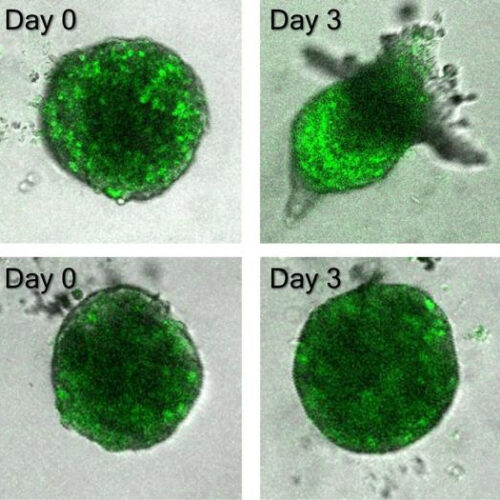By Pooja Toshniwal Paharia Jun 28 2023 Reviewed by Benedette Cuffari, M.Sc. In a recent study published in the journal Scientific Reports, researchers assess neuropsychological deficits among individuals with persistent symptoms of the severe acute respiratory syndrome coronavirus 2 (SARS-CoV-2) infection. Study: Neuropsychological deficits in patients with persistent COVID-19 symptoms: a systematic review and meta-analysis. Image Credit: Creative...
Category: <span>Prognostic</span>
Study uncovers direct link between blood group A and a higher risk for COVID-19 infection
by American Society of Hematology Credit: Pixabay/CC0 Public Domain Ask the average American what their blood type is, and you will likely receive a blank look. For most people, blood type only becomes an issue if they need a blood transfusion. Beginning in the earliest days of the COVID-19 pandemic, however, results from previous work published in Blood Advances suggested...
Study identifies risk factors for early onset colorectal cancer in males
REGENSTRIEF INSTITUTE INDIANAPOLIS – Colorectal cancer incidence and deaths are declining for individuals age 50 and older, but are increasing for those under 50. A new study, led by researcher-clinician Thomas Imperiale, M.D., of the U.S. Department of Veterans Affairs, Regenstrief Institute and Indiana University School of Medicine, identifies seven risk factors for early onset...
Follow the leader: Researchers identify mechanism of cancer invasion
PENN STATE IMAGE: A PENN STATE-LED RESEARCH TEAM FOUND THAT A MOLECULE CALLED MALAT1 HELPS REGULATE THE CELLS THAT LEAD CANCER INVASION. THE TOP ROW SHOWS BLADDER CANCER CELLS WITH MALAT1 EXPRESSION, WHILE THE BOTTOM ROW SHOWS BLADDER CANCER CELLS WITH REDUCED MALAT1 EXPRESSION. IN THE TOP ROW, THE CELLS ARE BEGINNING THEIR MIGRATION AWAY...
When doctors sugarcoat the truth, patients get shortchanged
By Eve Glicksman June 24, 2023 at 8:00 a.m. EDT (Melinda Beck for The Washington Post) “There’s a 99 percent chance this is nothing,” said my internist encouragingly, referring me to a cancer specialist after I’d had repeated abnormal blood counts. The oncologist I saw next reviewed my unusual symptoms, promptly asked about a tiny...
Researchers find a new class of biomarkers to predict treatment outcomes in cancer patients
by Kathryn F. Sykes, Medical Xpress Cancer is the result of the uncontrolled division and spread of cells into surrounding tissue. Recently researchers have begun to focus on biomarkers as a source of information about different cancers, how they work in the body, and how they can be fought. Credit: Colin Behrens/Pixabay, CC0 Public Domain One of...
Novel genetic scoring system helps determine ALS disease risk
MICHIGAN MEDICINE – UNIVERSITY OF MICHIGAN Among the tens of thousands of Americans with amyotrophic lateral sclerosis, or ALS, most do not have a single genetic mutation shown to cause the fatal disease. And a study led by University of Michigan finds that a newly created polygenic scoring system — one that weighs the combined...
FEWER THAN THREE MEALS A DAY MAY LOWER TYPE 2 DIABETES RISK
Time-restricted eating may reduce the risk of developing type 2 diabetes and improve overall health, according to a new review. This type of fasting means having regular but fewer meals, cutting out late-night snacks, and not eating for 12 to 14 hours (often overnight). After a comprehensive review of published, peer-reviewed studies, the researchers found a connection...
Low birthweight independently linked to increased risk of type 2 diabetes, including lower age at diagnosis
by Diabetologia Credit: Pixabay/CC0 Public Domain Two studies published in Diabetologia show that lower birthweight is an independent risk factor for type 2 diabetes (T2D), and is linked to a distinct presentation of T2D at the time of diagnosis—including younger age, a lower prevalence of overweight/obesity, and fewer people in the family with T2D. T2D patients with lower...
Latin Americans with greater Native American ancestry may be more susceptible to liver failure
by University College London EF CLIF infographic showing results of the ACLARA study in Latin America. Credit: EF CLIF Differences in the percentage of Native American ancestry in Latin American people are linked with the chances of them developing severe liver failure and associated high risk of short-term mortality, a study co-authored by UCL has found....






